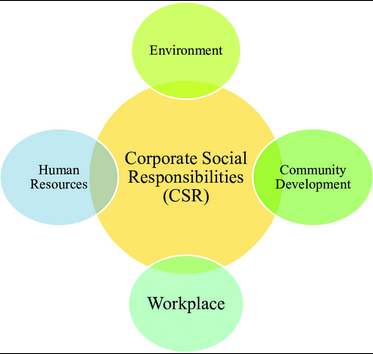Corporate Social Responsibility (CSR) involves businesses taking responsibility for their impact on society and the environment. Various forms of CSR initiatives are implemented by companies to address social and environmental issues. The effectiveness of these initiatives depends on factors such as the alignment with business values, stakeholder engagement, and the ability to create positive, measurable outcomes. This study examines effectiveness of different forms of corporate social responsibility in addressing social and environmental issues:

1. Philanthropy and Charitable Giving:
- Description: Companies contribute financial resources or donations to charitable organizations and community projects.
- Effectiveness: While philanthropy can have immediate positive effects on specific issues, its long-term impact may be limited without addressing the root causes of social and environmental problems.
2. Environmental Sustainability Practices:
- Description: Companies adopt sustainable practices, such as reducing carbon emissions, minimizing waste, and promoting eco-friendly products.
- Effectiveness: Effective in mitigating the environmental impact of business operations, enhancing brand reputation, and contributing to global sustainability goals.
3. Socially Responsible Investing (SRI):
- Description: Investors consider environmental, social, and governance (ESG) factors when making investment decisions, influencing companies to adopt responsible practices.
- Effectiveness: Encourages companies to align with sustainable practices, as investors increasingly value social and environmental responsibility.
4. Corporate Volunteering Programs:
- Description: Companies encourage employees to volunteer for community service and social initiatives.
- Effectiveness: Fosters a positive company culture, strengthens community ties, and allows employees to actively contribute to addressing social issues.
5. Ethical Sourcing and Supply Chain Responsibility:
- Description: Companies ensure ethical practices in sourcing raw materials, labor, and throughout the supply chain.
- Effectiveness: Addresses issues like child labor, exploitation, and environmental degradation, creating a positive impact on both people and the planet.
6. Social Impact Partnerships:
- Description: Collaborations between businesses and non-profit organizations to address specific social issues through joint initiatives.
- Effectiveness: Can be highly effective by combining resources, expertise, and networks to create sustainable solutions to social challenges.
7. Diversity and Inclusion Initiatives:
- Description: Companies promote diversity, equity, and inclusion within their workforce, fostering a culture of fairness and equal opportunities.
- Effectiveness: Enhances employee satisfaction, attracts diverse talent, and contributes to a more equitable society.
8. Education and Skill Development Programs:
- Description: Companies invest in education and skill development initiatives to empower communities and address social inequality.
- Effectiveness: Long-term impact on breaking the cycle of poverty by providing individuals with the skills and knowledge needed for sustainable employment.
9. Transparency and Stakeholder Engagement:
- Description: Companies communicate openly about their CSR initiatives and engage with stakeholders to gather feedback.
- Effectiveness: Builds trust, allows for accountability, and enables companies to adapt their CSR strategies based on community and stakeholder needs.
10. Advocacy and Public Policy Engagement:
- Description: Companies engage in advocacy efforts and collaborate with policymakers to influence positive social and environmental change.
- Effectiveness: Can drive systemic change by influencing policies that address root causes and create a more conducive environment for CSR.
Challenges and Considerations:
- Authenticity: CSR initiatives must be authentic and aligned with the company’s values to be effective and avoid accusations of “greenwashing” or insincerity.
- Measurable Impact: Companies should establish clear metrics to measure the impact of CSR initiatives and regularly assess their effectiveness.
- Global Context: Consideration of global and cultural differences is essential to ensure that CSR initiatives are relevant and respectful in diverse regions.
In summary, the effectiveness of different forms of CSR in addressing social and environmental issues depends on the sincerity of the commitment, stakeholder engagement, and the ability to create positive, sustainable outcomes. Combining multiple approaches and integrating CSR into the core business strategy often leads to more comprehensive and impactful results.
